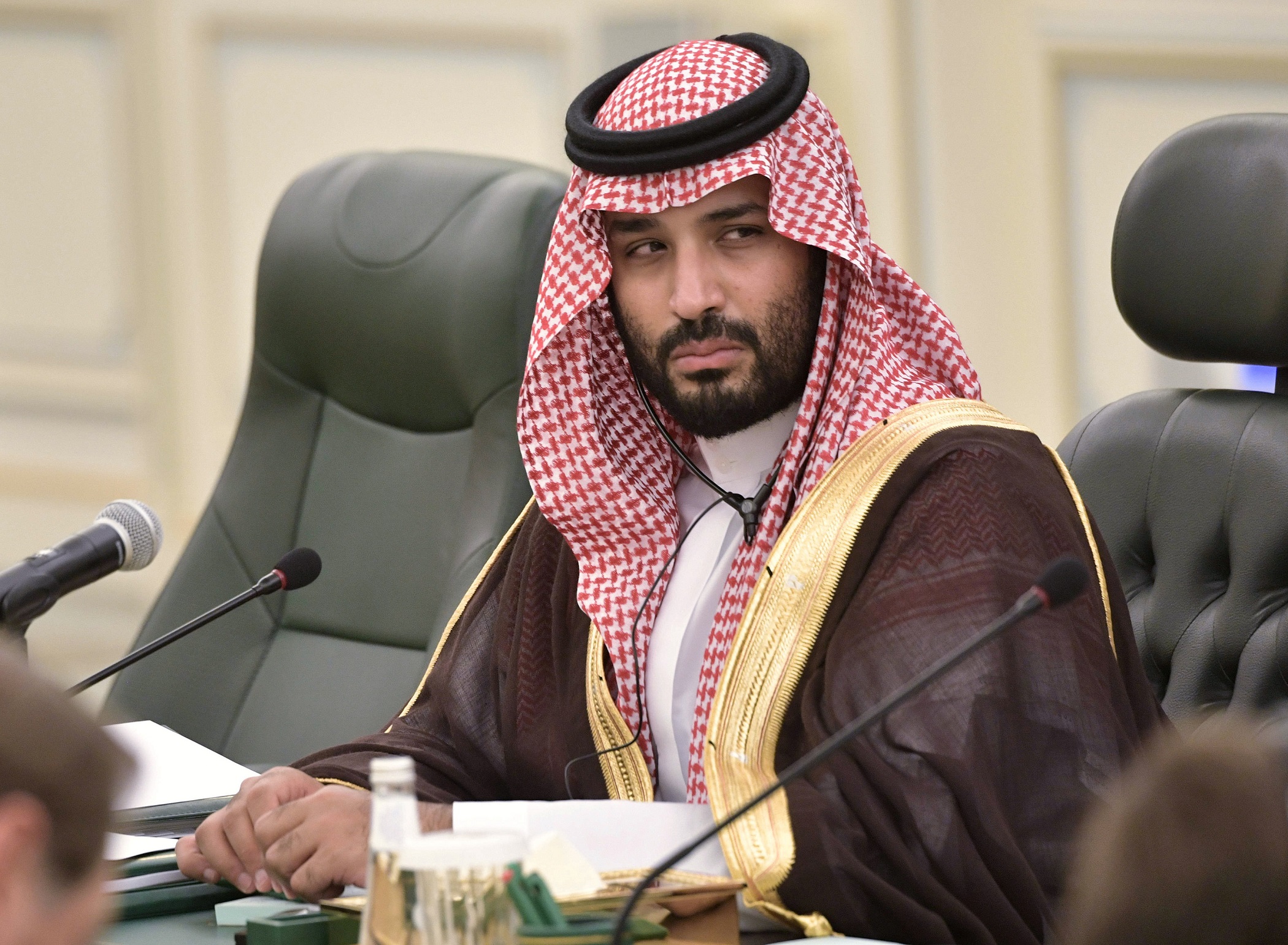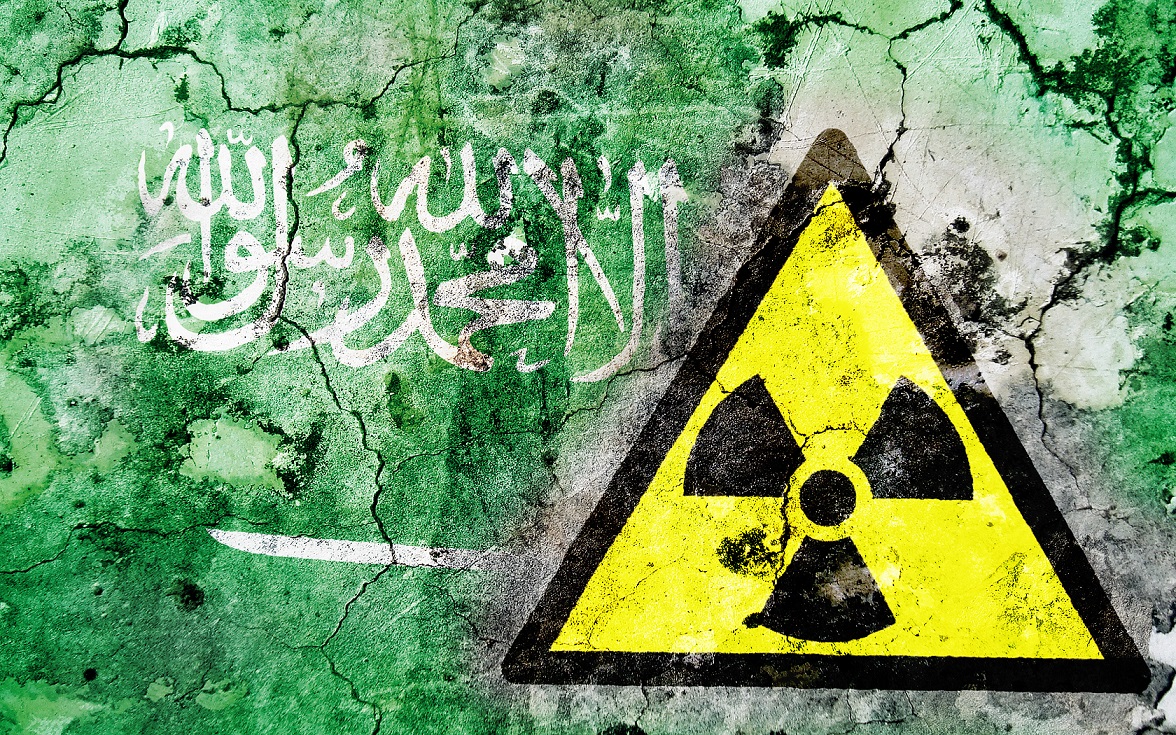Publications
INSS Insight No. 1698, March 19, 2023
Slowly but surely Saudi Arabia is proceeding with its nuclear program on various routes. The recent rapprochement between Riyadh and Tehran has not significantly changed the basic facts in this context, including the Kingdom’s perception of the Iranian threat. In the not too distant future, tension could arise between Israel’s interest in oversight and restrictions on the program, because of the risks it entails, and the Israeli interest of promoting relations with the Kingdom. In spite of Israel’s ties with Saudi Arabia and their future potential, considerations on preventing proliferation risks must take precedence. Israel must be ready to take various steps to prevent Saudi Arabia from achieving uranium enrichment / plutonium processing, even at the cost of diplomatic relations with Riyadh.
The Saudi Nuclear Program
The majority of Saudi Arabia’s Vision 2030, initiated by Crown Prince and de facto ruler Mohammed bin Salman, is devoted to the necessity of reducing the country’s dependence on oil and establishing a diverse, competitive, and sustainable economy. Inter alia, the Kingdom decided to pursue the nuclear road, with energy-economic justifications, although this is also somewhat of an answer to Iran and effort contribute to Riyadh’s prestige and status. In 2021 the Kingdom, a signatory of the NPT, announced its vision of building 16 nuclear reactors by 2032, although this has now been postponed to 2040. In 2017 the Saudis issued an international tender for the construction of the first two reactors, but these failed to meet the deadline. The reasons for the postponement are partly linked to the difficulties of reaching a nuclear cooperation agreement with the United States.
Over the years, the Kingdom has stressed that its nuclear program is for peaceful purposes only, although senior Saudi officials, including the Crown Prince, have declared openly and explicitly that if Iran has nuclear capability, the Kingdom must also have such capability. Statements of this kind, the slow process of the civilian program, and concerns about Iran reinforce the assessment that the Kingdom has no real interest in a civilian nuclear program and when its back is against the wall, it will look for shortcuts. For that reason, apparently, Riyadh is insisting on its “right” to enrich uranium. In that way it pressures the West to prevent Iran from completing its nuclear development, for fear that failure to do so will bring a Saudi response and launch a nuclear arms race in the Middle East. In general, the Saudis wish to present themselves as Iran’s equals, and if Iran can enrich uranium, say the Saudis, then so can we. In addition, the Saudis want to keep all their nuclear options open, even if they are not intending to work on the development of nuclear weapons immediately.
In a document outlining its nuclear policy, the Kingdom pledges to undertake to develop a nuclear program for peaceful purposes, consistent with binding international treaties; to ensure nuclear safety and operational and regulatory transparency; and to utilize the resources (mainly uranium) in its territory. The Saudis are advancing slowly toward realizing their nuclear vision, certainly relative to their neighbor, the United Arab Emirates, which operates three out of the four Korean-made nuclear reactors (APR1400) in its territory. The UAE, in return for international aid in this field, renounced uranium enrichment and plutonium processing – a precedent labeled “the gold standard.”
Saudi Arabia does not accept this standard, and it has chosen a different path, systematically promoting its nuclear program through a number of routes:
Uranium enrichment: In January 2023 the Saudi Energy Minister and brother of the Crown Prince, Abdulaziz ben Salman, declared that the Kingdom intends to exploit the uranium deposits in its territory for low level enrichment (LEU). This comes after statements by other senior Saudi officials in recent years, stressing the Kingdom’s goal of achieving independence in operating the nuclear fuel cycle. Is there already any actual activity in this field? In 2020 it was discovered that the Saudis had a facility to produce “yellowcake,” the first stage in the production of uranium for any purpose, built in cooperation with China, which has tightened recently. Thus far no facilities have been “discovered” to convert or enrich uranium. The lack of economic feasibility of independent enrichment and the options available from a reliable external source, the Kingdom’s solar potential, and ts massive oil reserves all point to a reasonable suspicion that the Kingdom is not only looking toward a civilian nuclear program.
Power reactors: In 2022 the Kingdom issued a tender to build two reactors, each of 1.4 gigawatts, on the Gulf coast (between its borders with Qatar and the UAE), and is now examining proposals from Russia, China, France, the United States, and South Korea. South Korea is given the best chance of winning, due to the existing cooperation between the countries and thanks to its experience of building the UAE reactors. For Saudi Arabia to purchase the reactors from South Korea, Seoul needs United States approval, for political and perhaps technological reasons (the Americans claim that the technology used in the reactors belongs to the Westinghouse Corporation). Another obstacle is Saudi Arabia is not a signatory to the “123 agreement” for nuclear cooperation with the United States (named after the section in the US Atomic Energy Act of 1954).
Regulation and research: On the grounds of King Abdulaziz City for Science and Technology (KACST) in Riyadh a small Argentinian-made research reactor is currently under construction, a project also involving South Korea (loading fuel into the reactor will require a new agreement between Saudi Arabia and the IAEA). The light water reactor has low capacity (30 kW), is mainly intended for training purposes, and is not a risk in terms of proliferation. The Kingdom has another organization engaged in nuclear research, the King Abdullah City for Atomic and Renewable Energy (KACARE). In 2022 the two organizations signed an agreement on cooperation and integration in various fields. That year saw the revelation of a nuclear holding company that will focus on building nuclear facilities and training personnel in the field.
Shortcuts: Saudi Arabia has a system of longstanding strategic relations with Pakistan. While Riyadh remains a financial support for Islamabad, Pakistan could help it in a variety of ways to achieve a fast, ready-made solution to deal with an Iranian nuclear breakout. Pakistan is not alone; North Korea could also help the Saudis. Saudi Arabia’s strategic inferiority to Iran, the nature of its current leadership, and its immense resources all increase the probability that if Iran achieves a nuclear breakout, Riyadh will implement “the Pakistani option. The recent instrumental rapprochement between Riyadh and Tehran does not significantly change the basic facts or the Saudi perception of the Iranian threat. The Saudis have recently drawn a red line that if crossed, will force them to acquire nuclear capability, probably ready-made, i.e., operational nuclear weapons in Iranian hands. In December 2020, Saudi Foreign Minister Faisal bin Farhan said that in that case, “all bets are off.”
Nuclear Proliferation and the Price of Normalization
The Obama and Trump administrations discussed a “123 Agreement” with Saudi Arabia. The main reason for the lack of progress apparently links to the Kingdom’s rejection of the US condition: renounce uranium enrichment / plutonium processing on its territory and sign the IAEA Additional Protocol, allowing closer supervision of its facilities and a fuller picture of Saudi nuclear efforts.

With respect to its civilian nuclear program and the efforts to pressure Washington to relax its demands over the agreement, the Saudis have additional possible leverage: normalization with Israel. Indeed, it has been reported that one of the Kingdom’s conditions for warmer relations with Israel is to enable its nuclear activity. In this version, the Saudis will ask the US to soften the terms for nuclear cooperation with them in return for confidence building measures toward Israel.
Jerusalem and Riyadh maintain quiet relations, and Prime Minister Benjamin Netanyahu even announced his intention to work toward a peace agreement with the Kingdom. But when Israel comes to weigh the possible price of such an agreement, it must also take into account the nuclear proliferation aspects. Regional nuclear proliferation in the Saudi context joins the risk of kinetic damage to the future reactors, for example by drones / missiles sent by Iran or its proxies (the Houthis previously boasted that they had fired missiles toward the UAE reactors in Barakah – a report that was denied by Abu Dhabi.) The risks to be considered include unauthorized operation and the loss of control of any future weapons or nuclear materials.
The matter must be discussed, even behind closed doors, and is materially different from the process that led to normalization with the UAE, during which Israel apparently gave consent for the purchase by the Emiratis of F-35 aircraft. Israel must oppose any nuclear cooperation between Washington and Riyadh, unless it includes adoption of the “gold standard.” The Kingdom once hid aspects of its nuclear missile program, and it is important to maintain intelligence vigilance regarding developments of this nature in its vast territory.
The dilemma is not simple, because Israel has a clear interest in ensuring that the Saudis cooperate with the United States on nuclear matters, and not with China or Russia. Israel does not need to object in principle to the civilian nuclear program in Saudi Arabia. Anyway, opposition will have no effect, since in this context the train has already left the station. Normalization with Saudi Arabia is an important objective, and Israel should consider concessions in order to achieve it. However, Israel must carefully weigh the price of a possible peace agreement with Saudi Arabia if it includes Saudi nuclear activity that ignores the “gold standard.” Israel must give priority to regulating its relations with the Kingdom and be prepared to make concessions, but not over nuclear issues.



